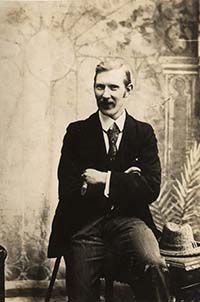 Live Learning And The Feedback Loop
Live Learning And The Feedback Loop
Wikipedia and YouTube are incredible resources, and they each have their own place in our personal learning cycles. There are series of free video tutorials regarding the finer points of public speaking on YouTube, and untold amounts of how-to’s on Wikipedia to help you research your subject matter, but neither of these resources provide the human feedback loop that accelerates our learning and growth curves.
A teacher in a video can demonstrate how to deliver a speech, when to pause, what kind of hand movements go with particular lines and so on, and this is hugely valuable for forming a solid base. But only a live person in a one-on-one setting can provide personalized feedback – you need to make your pauses a little longer, you’re repeating the same hand movement, you’re umm’ing and aaah’ing. And it’s not all about just pointing out what you’re doing wrong – positive reinforcement and words of affirmation are also very critical in our personal growth.
When William Arthur Ward said that a great teacher inspires, he was talking about personalized instruction, including the accelerated learning cycle that happens with the proper feedback loop.
When Leaders Take on the Role of Teachers
Great leaders are good teachers who go out of their way to mentor others. Effective leadership requires a leader to share knowledge and expertise. A leader who withholds the opportunity to empower his or her followers is not a true leader, just someone who holds the title of manager or boss, but not the competency of a true leader.
When it comes to public speaking benefits and presentations, for instance, an effective leader will not only teach exceptional speech delivery but self-confidence as well. This kind of leader will not only see to it that a presentation has been well-researched and documented, and eventually well conducted, but will make the effort to see to it that it has impact on the audience it was presented to, and conveyed the speaker’s intended message. This is all part of today’s new communication model, where the teacher will not only ensure that the message was presented, but also ensure that it was received.
Socrates, Plato, Aristotle, and Alexander the Great
True leaders are teachers, there’s no doubt about it, and they have the privilege of imparting more than just knowledge to their audience, followers and peers alike. Great leaders have become such because of great teachers. Consider this: Socrates taught Plato who taught Aristotle who taught Alexander the Great. Of the various roles that a great leader must assume, few are really more significant than teacher.
Teaching is more than imparting knowledge or new skills; it is also having the propensity for building relationships, because a leader who teaches also sends the message that he or she actually cares about those he or she leads. With the proper leadership development training, you too can transform from being the boss or manager, into being a leader, mentor, and teacher.
